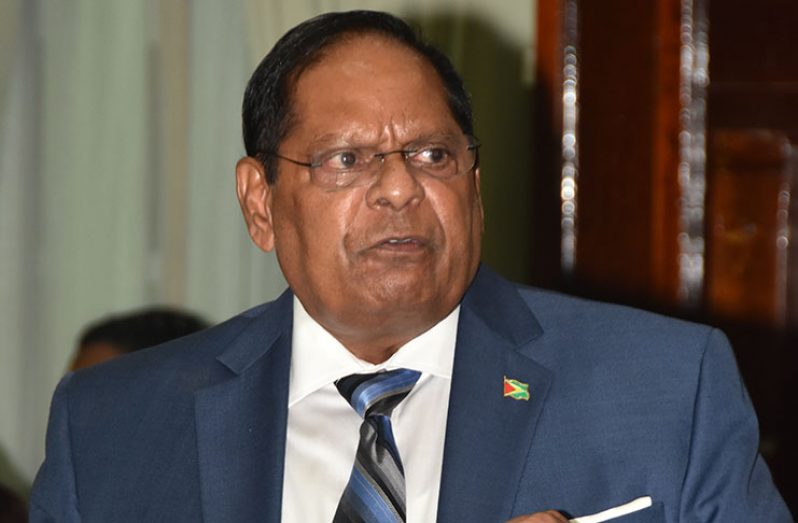YEARS after being dormant, the Integrity Commission will be reconstituted, and equipped with an expanded Code of Conduct which forms part of the Integrity Commission Act.
In an interview with the Guyana Chronicle on Monday, Prime Minister Moses Nagamootoo said now that the Integrity Commission (Amendment of the Code of Conduct) Order 2017 has been gazetted Government will be forging ahead with plans to reconstitute the commission.
The Integrity Commission (Amendment of the Code of Conduct) Order 2017 was Gazetted last Tuesday by the Prime Minister. It is expected to be laid in the National Assembly soon for review by a Parliamentary Committee paving the way for its enforcement.
In keeping with the Ten Principles of Public Life – accountability, dignity, diligence, duty, honour, integrity, loyalty, objectivity, responsibility and transparency – the order addresses issues of bribes, discrimination, gifts, conflict of interest, use of official influence, handling of classified information, use of public property, sexual misconduct and entertainment.
The expansion of the existing Code of Conduct, the Prime Minister explained will bring the Act in line with the Legislation governing the State Asset Recovery Unit and the Financial Intelligence Unit (FIU), which state that employees of these state agencies must declare their assets in accordance with the Schedule II of the State Asset Recovery Act.
According to Prime Minister Nagamootoo, substantive amendments will be made to the Integrity Commission Act in keeping with recommendations. However, he said before such amendments are made, there will be need for extensive consultation. “It will take a lot of time and it would require a lot of consultation,” Prime Minister noted.
“What I want to do, is to kick start the work of the Integrity Commission and to …have an Integrity Commission in place without further delay,” he added.
The Integrity Commission Act was assented to on the 24th September 1997. It provides for the establishment of the Integrity Commission, and makes provisions for the purpose of securing the integrity of persons in public life.
The Act also provides for the appointment of a Chairman to head the Commission, not less than two (2) and not more than four (4) other members of the Commission, a Secretary to oversee the day-to-day work of the Commission, and other officers for the proper functioning of the Commission.
The Chairman should be a person who is or was qualified to be a Puisne Judge of the High Court, or any other fit and proper person; and the other members should appear to the President as having experience and showing capacity in law, public administration, social service, finance or accountancy or any other discipline.
The Chairman and other members are appointed by the President after consultation with the opposition.
Public Officers and positions listed under Schedule 1 of the Commission’s Act should disclose their financial assets and liabilities on or before June 30, each year. When a public officer ceases to be a person in public life, he or she should disclose his or her assets and liabilities to the Commission within thirty days from the date that individual cease to be a person in public life, the legislation states.
In the past, the functioning of the Integrity Commission has been a controversial issue, though the previous administration had sworn in members in 1999, the Commission’s Chairman, Bishop Randolph George, resigned in 2006, and the commission has since been headless.




.jpg)









